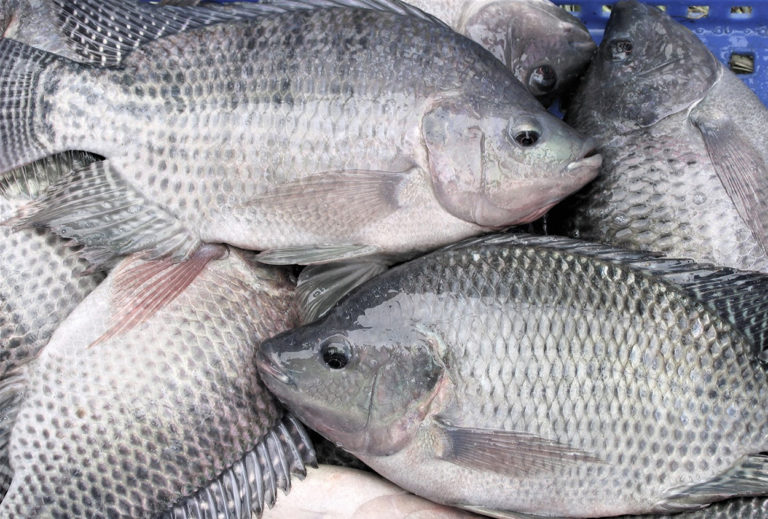
Aquafeeds
Effect of feeding during off-flavor depuration on geosmin excretion by Nile tilapia
Evaluating off-flavor depuration time in Nile tilapia shows it is strongly reduced when farmers adopt a practice of feeding the fish.
Innovation & Investment
RAS operator puts proactive “microbiome management” approach in play to eliminate off-flavors and finds good results in lowering geosmin levels.

Aquafeeds
Evaluating off-flavor depuration time in Nile tilapia shows it is strongly reduced when farmers adopt a practice of feeding the fish.
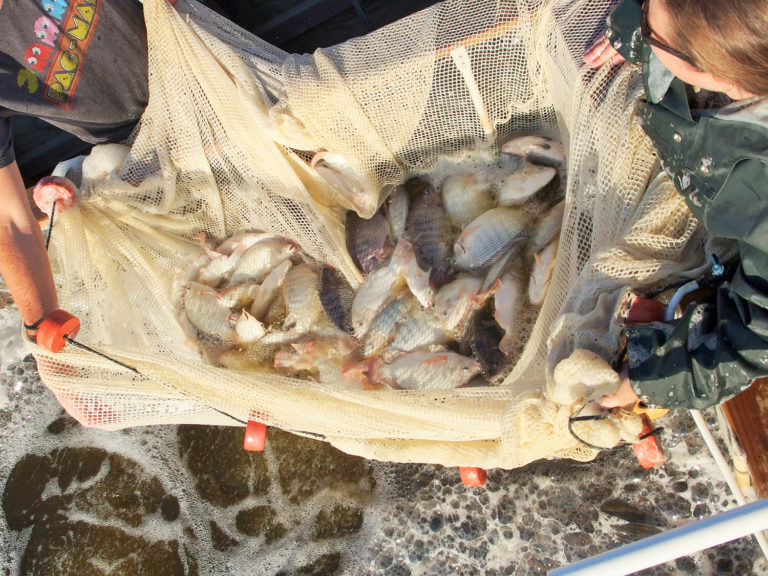
Health & Welfare
This study in an outdoor biofloc technology production system evaluated impacts on fish production indices, common microbial off-flavors and water quality dynamics for hybrid tilapia.
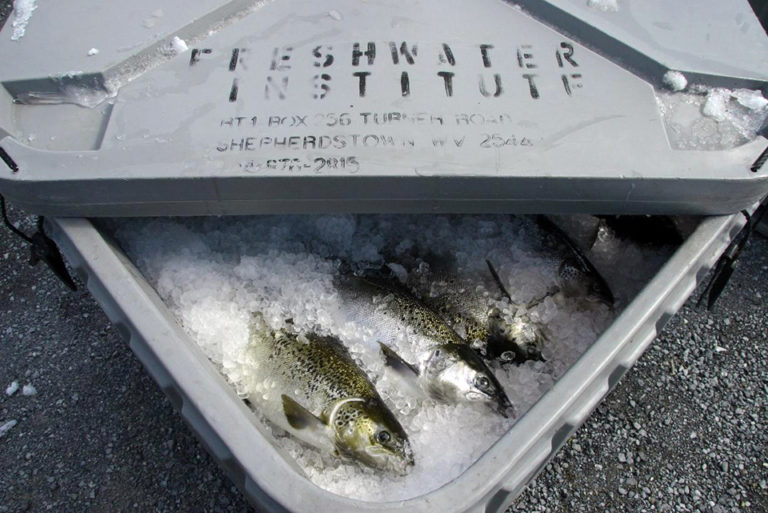
Innovation & Investment
A study to evaluated operating practices and system designs that could potentially enhance depuration of off-flavors from Atlantic salmon cultured in a semi-commercial-scale freshwater recirculating aquaculture system.
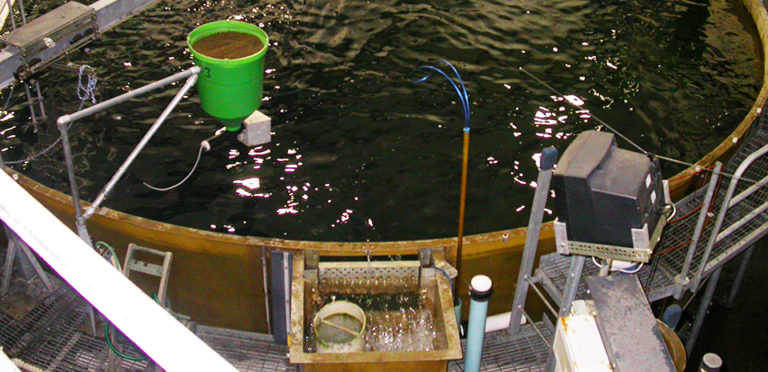
Health & Welfare
The presence of compounds such as geosmin and 2-methylisoborneol (MIB) in recirculating aquaculture systems (RAS) can result in earthy or musty off-flavors in salmonids raised in the systems.
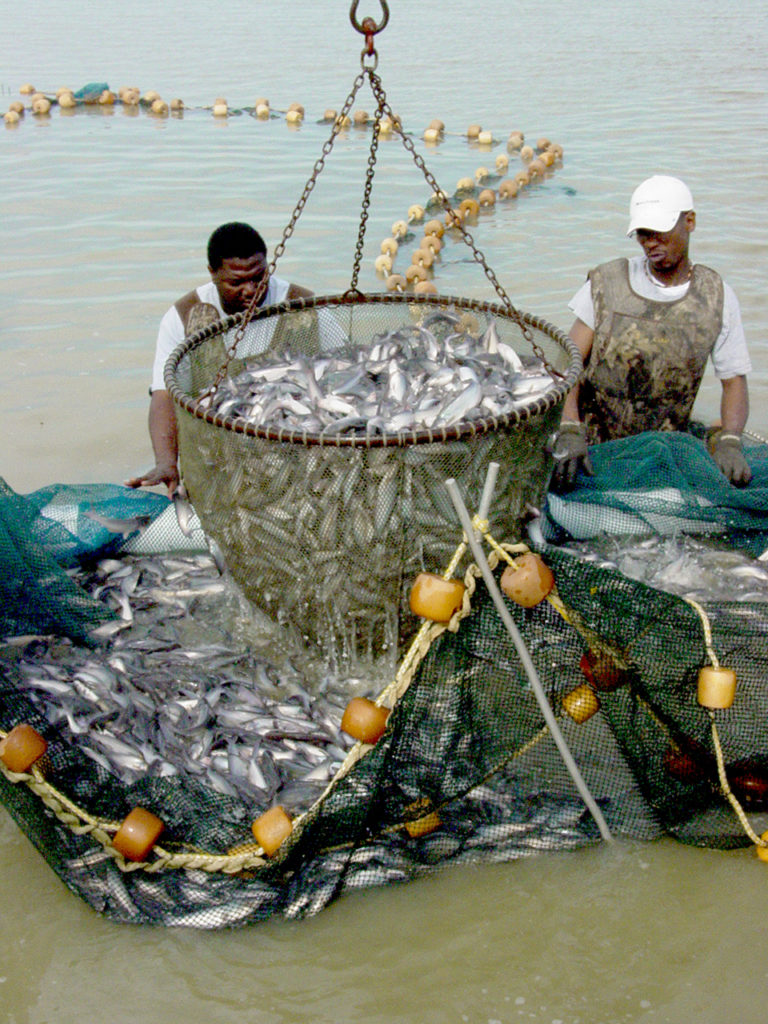
Intelligence
The authors conducted a study to determine whether channel catfish systematically develop off-flavors after partial harvest as well as the possible origins of the flavors.
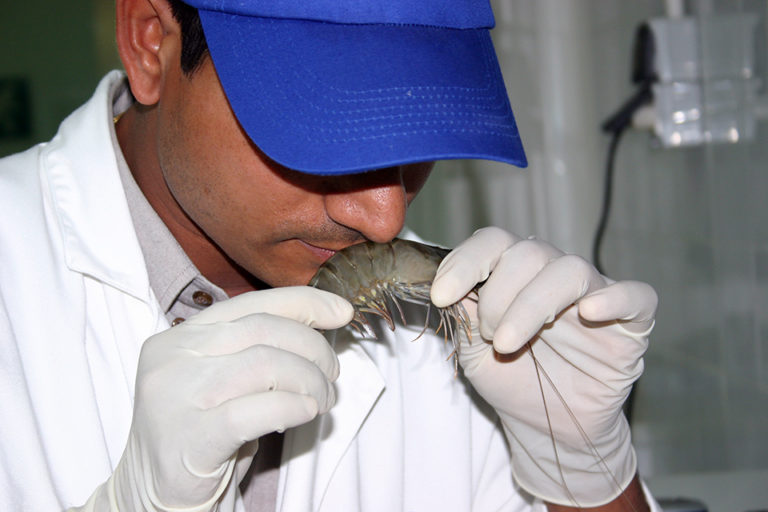
Intelligence
Off-flavors in pond and recirculating aquaculture systems have occurred through the biological production of geosmin and 2-methylisoborneol. The compounds are rapidly absorbed through the gills of fish, but depuration can require days or weeks.
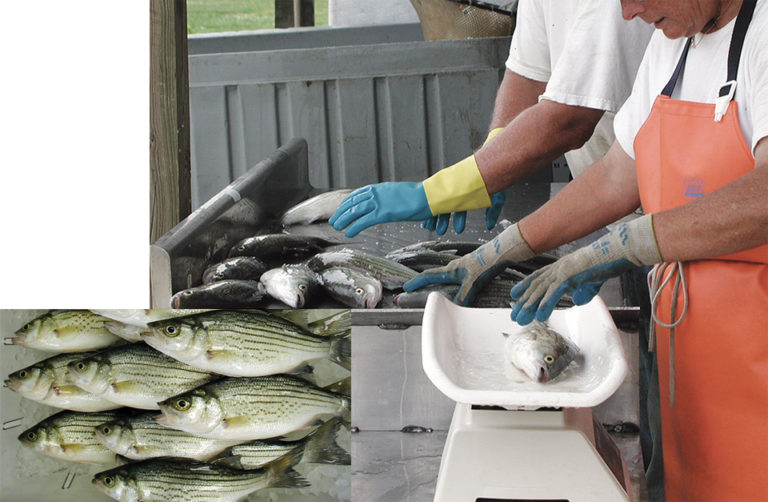
Health & Welfare
Flavor is an important seafood quality attribute that can be affected by preharvest conditions. Off-flavors are a result of natural enzymatic, oxidative and bacterial spoilage processes.